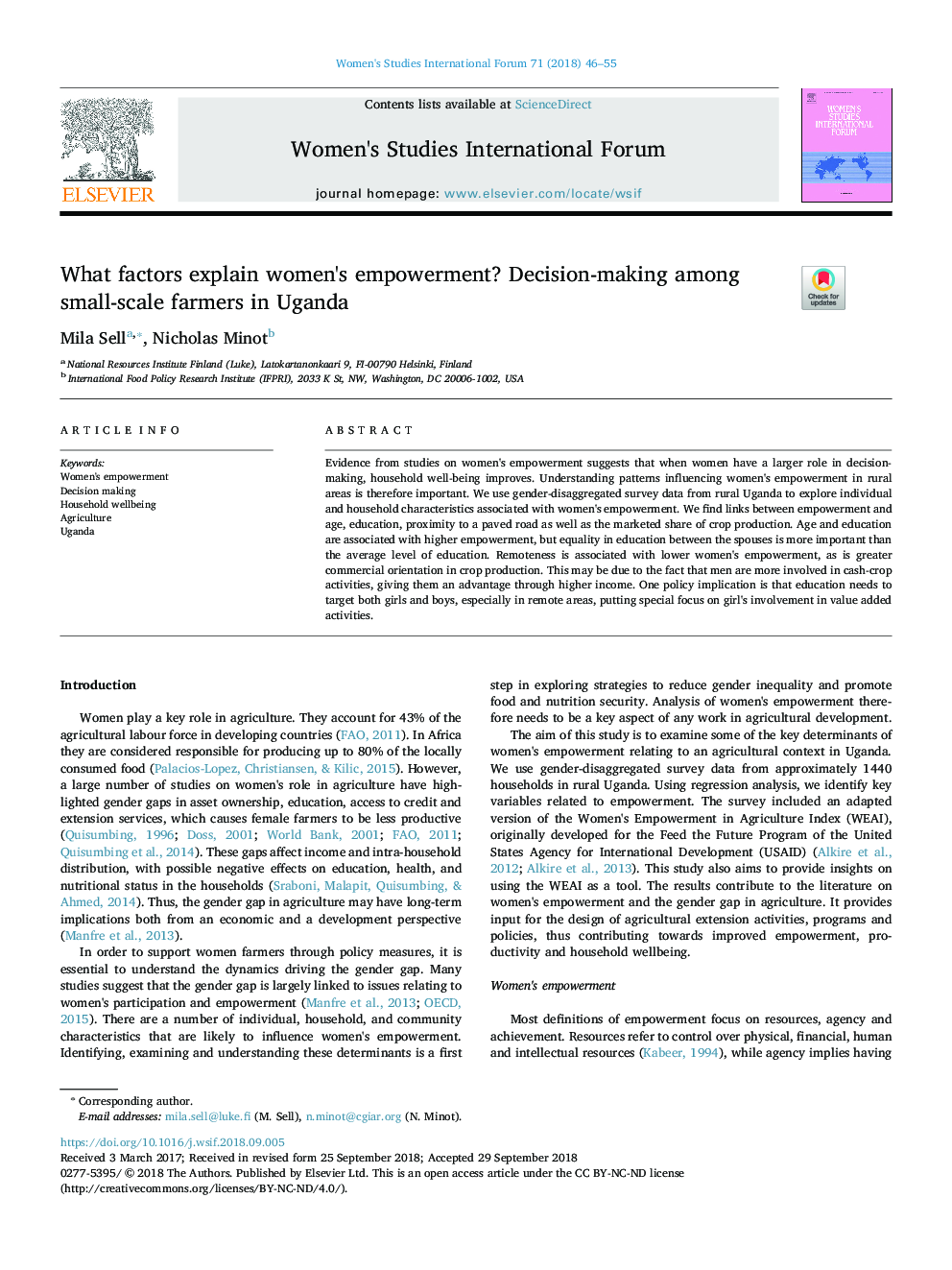| Article ID | Journal | Published Year | Pages | File Type |
|---|---|---|---|---|
| 11028137 | Women's Studies International Forum | 2018 | 10 Pages |
Abstract
Evidence from studies on women's empowerment suggests that when women have a larger role in decision-making, household well-being improves. Understanding patterns influencing women's empowerment in rural areas is therefore important. We use gender-disaggregated survey data from rural Uganda to explore individual and household characteristics associated with women's empowerment. We find links between empowerment and age, education, proximity to a paved road as well as the marketed share of crop production. Age and education are associated with higher empowerment, but equality in education between the spouses is more important than the average level of education. Remoteness is associated with lower women's empowerment, as is greater commercial orientation in crop production. This may be due to the fact that men are more involved in cash-crop activities, giving them an advantage through higher income. One policy implication is that education needs to target both girls and boys, especially in remote areas, putting special focus on girl's involvement in value added activities.
Related Topics
Physical Sciences and Engineering
Materials Science
Materials Science (General)
Authors
Mila Sell, Nicholas Minot,
